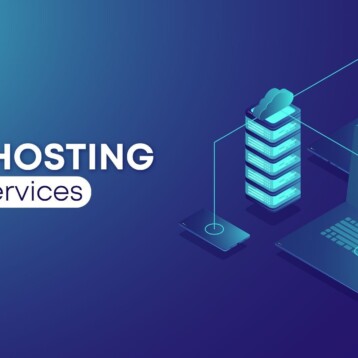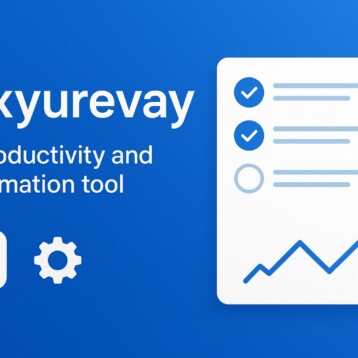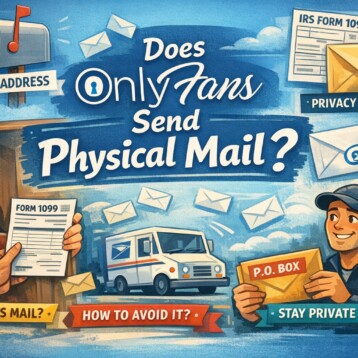In the sprawling landscape of the internet, where information flows endlessly and digital footprints are woven into the fabric of our online existence, the concept of online anonymity stands as both a fortress of privacy and a veil of intrigue. It promises a refuge from the prying eyes of data harvesters, governments, and cybercriminals, offering a sense of peace of mind that your online actions remain hidden from scrutiny. But can it truly deliver on this promise? In this comprehensive exploration, we’ll unveil the complexities of online anonymity, its potential benefits, pitfalls, and the peace of mind it can bring—or sometimes fail to provide.

The Quest for Online Privacy
Before we delve into the intricate world of online anonymity, let’s understand the motivations that drive people to seek privacy in the digital realm. It’s not merely a matter of hiding from surveillance; it’s about safeguarding the fundamental rights to privacy and freedom of expression. Here are a few compelling reasons why individuals pursue online anonymity:
- Protection from Surveillance
In an era where governments and corporations have the capability to monitor our online activities, privacy becomes a shield against intrusive surveillance. Online anonymity offers a means to resist unwarranted prying eyes.
- Guarding Personal Data
Data breaches and identity theft are pervasive threats. Online anonymity can help protect sensitive personal information from falling into the wrong hands.
- Freedom of Expression
Online anonymity empowers individuals to express their views, engage in activism, or discuss sensitive topics without fear of reprisal or censorship.
- Escape from Harassment
For some, online anonymity is a refuge from cyberbullying, stalking, or harassment, providing a protective cocoon against online threats.
- Preservation of Reputation
Maintaining anonymity can help individuals separate their online persona from their real-life identity, preserving their professional and personal reputation.
Now that we’ve established the motivations behind the pursuit of online anonymity, let’s dissect the components and challenges of this complex concept.
The Anatomy of Online Anonymity

Online anonymity isn’t a one-size-fits-all solution; it’s a multifaceted concept that encompasses various layers of identity concealment. Understanding these layers is essential to navigate the landscape of online privacy effectively:
At the surface level, using pseudonyms or nicknames is a simple way to create a degree of separation between your online and offline identity. However, it offers limited protection against determined adversaries.
The Tor network and Virtual Private Networks (VPNs) are tools that route your internet traffic through multiple servers, concealing your IP address and making it harder to trace your online activities. While effective, their security depends on their configuration and trustworthiness.
End-to-end encryption, as seen in messaging apps like Signal or WhatsApp, ensures that only the intended recipient can decipher the messages. This safeguards your communication from eavesdropping.
Secure browsers, like the Tor Browser, prioritize anonymity by blocking tracking cookies and hiding your browsing habits. However, the efficacy depends on your browsing practices.
Digital currencies like Bitcoin offer a degree of anonymity for online transactions. However, they’re not entirely immune to tracking, and their use can leave digital breadcrumbs.
Providers like ProtonMail offer end-to-end encrypted email services, enhancing the privacy of your electronic correspondence.
Platforms like SecureDrop provide a secure channel for whistleblowers to submit information anonymously, protecting their identities.
While these tools and practices contribute to online anonymity, it’s crucial to recognize their limitations and the potential pitfalls that can compromise your privacy.
The Pitfalls of Online Anonymity
Online anonymity, often referred to as “going incognito” in the digital world, is the practice of concealing your identity while engaging in various online activities. It’s akin to donning a digital cloak that obscures your real name, location, and other personally identifiable information. This cloak is crafted from a toolbox of techniques, software, and strategies designed to protect your online privacy.
Online anonymity is a powerful shield, but it’s not impenetrable. Understanding its limitations is as vital as appreciating its benefits:
- False Sense of Security
Using tools like Tor or VPNs can create a false sense of security. While they enhance anonymity, they don’t make you completely anonymous, especially if you’re not using them correctly.
- Data Leakage
Even with the best intentions, data leakage can occur. Inadvertently revealing personal information or connecting to a non-anonymous account can compromise your anonymity.
- Tracking Techniques
Advanced tracking techniques, such as browser fingerprinting or analyzing metadata, can sometimes pierce the veil of anonymity.
- Legal and Ethical Dilemmas
Engaging in illegal activities while anonymous doesn’t grant immunity from legal consequences. The line between privacy and criminality can be thin.
- Service Limitations
Some online services, like social media platforms, may limit or block anonymous accounts, affecting your online experience.
- Trustworthiness of Tools
The efficacy of anonymity tools depends on their trustworthiness. Some VPNs, for example, may log your activities or cooperate with authorities.
Peace of Mind Through Online Anonymity
Given the complexities and challenges, how can online anonymity truly bring you peace of mind? While it’s not a foolproof guarantee, it can significantly enhance your digital privacy and security.
Online anonymity can safeguard your personal and private communications from unwarranted surveillance, preserving your right to privacy. By concealing your identity, online anonymity can protect sensitive information such as financial data, personal details, and confidential communication.
It empowers you to express your views, engage in activism, or explore sensitive topics without fear of reprisal, censorship, or harassment. Online anonymity provides a layer of defense against cyberbullying, stalking, and other online threats, offering peace of mind in the digital world. Separating your online persona from your offline identity can safeguard your professional and personal reputation. Online anonymity is a tool, and like any tool, it can be used responsibly or irresponsibly. As you embark on the journey of online anonymity, consider the following principles:
Always operate within the bounds of the law and ethical guidelines. Online anonymity doesn’t grant immunity from responsibility. Invest in your digital security by using reputable anonymity tools and educating yourself on best practices. Remember that online anonymity doesn’t justify harmful behavior. Treat others with respect and empathy, regardless of their anonymity.
Maintain a healthy dose of skepticism. Regularly assess your online practices and review your security measures.
Striking a balance between online anonymity and transparency is key. Be mindful of when it’s appropriate to use anonymity and when it’s beneficial to be transparent.
Conclusion: The Promise and Complexity of Online Anonymity
Online anonymity is a double-edged sword. It offers the promise of privacy and peace of mind, yet it exists within a complex digital landscape where threats and challenges persist. To truly benefit from online anonymity, you must wield it wisely, understanding its capabilities and limitations.
In a world where information is both power and vulnerability, online anonymity empowers individuals to navigate the digital realm on their own terms. It provides a refuge for the protection of personal data, the expression of free speech, and the preservation of privacy. However, it’s a refuge that requires vigilance, responsibility, and a clear understanding of its capabilities.
Ultimately, online anonymity can bring you peace of mind, but that peace comes not solely from the tools you employ, but from the knowledge and wisdom you apply to your digital journey. It’s a journey worth embarking on, for within the realms of anonymity, you may discover a sanctuary where you can explore, express, and engage with the world on your own terms, even as the digital landscape continues to evolve.










